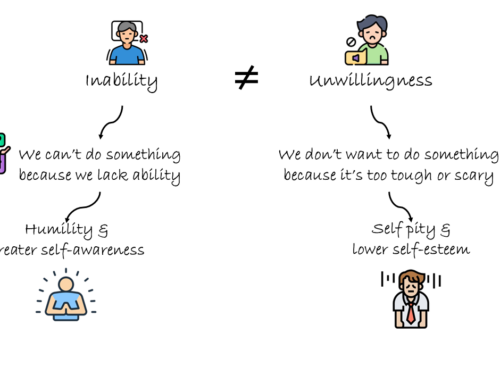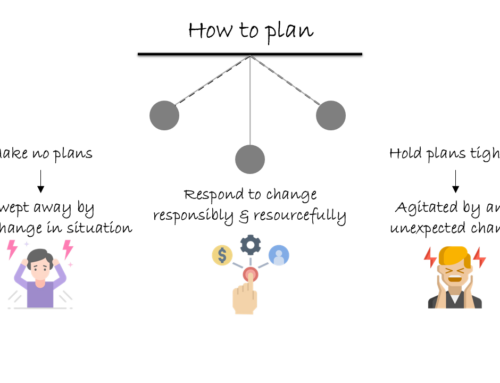Accepting our weaknesses takes courage – and so does accepting ourselves with our weaknesses
Life’s battles often expose our weaknesses. Accepting those weaknesses can make us feel unsafe, undermined and unworthy. Recoiling from such threatening feelings, we often try to find some scapegoat.
However, denying our defects is cowardly. It takes courage to confront ourselves – to take responsibility for the things that are wrong with us and to strive to fix them as much as possible.
Though self-confrontation is essential for any positive self-transformation, we can’t let self-confrontation veer to the other extreme of self-condemnation, wherein we consider our very existence worthless. Such a resentful, fretful approach is also cowardly; if we are worthless, we don’t need to even try to improve ourselves. An excessively negative mentality – filled with fear, lamentation and moroseness – is typical of the mode of ignorance (Bhagavad-gita 18.35).
Put succinctly, believing we are flawless characterizes the mode of passion; believing we are worthless characterizes the mode of ignorance.
Healthy self-acceptance rests on the foundational understanding that we are our only resource; we can’t get an alternative to our present body-mind machine. Suppose we were being attacked, and had only a heavy and rusty gun to defend ourselves. We would need to both accept the gun’s limitations and accept the gun with its limitations. Failure to accept either could be fatal. Similarly, if we are to do anything worthwhile with our life, we need to accept our weaknesses and accept ourselves with our weaknesses.
Such healthy self-acceptance becomes easier when we understand our core spirituality. Below the weaknesses that beset our body and mind, we all are pure souls – we are parts of God, with an innate potential for godliness. Disconnection from God is the root cause of our weakness. When we courageously reconnect with him through devotion, we become purified, guided and empowered to manifest our best.
Think it over:
- Why is refusing to accept our weakness cowardly?
- Why is refusing to accept ourselves with our weakness also cowardly?
- What two understandings can foster healthy self-acceptance?
To know more about this verse, please click on the image
Explanation of article:
https://www.youtube.com/watch?v=hzhT-EINPgQ&feature=youtu.be
Podcast:






Leave A Comment